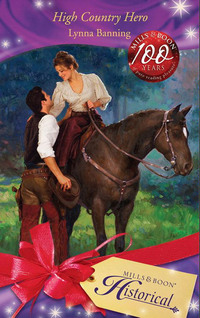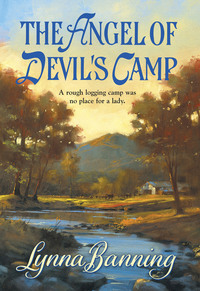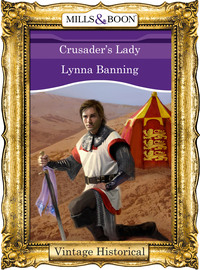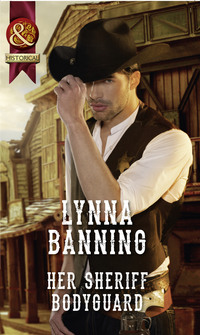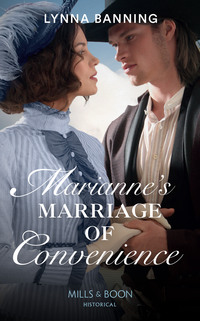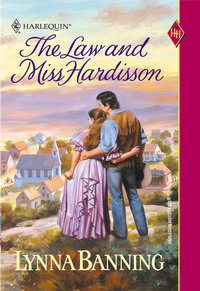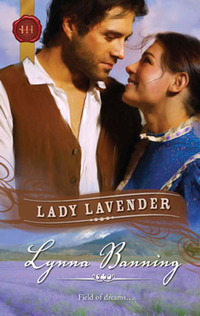
Полная версия
Smoke River Bride
“Guess it could use some cleaning up,” Thad said with a catch in his voice. “Hattie always said…” He left the thought unfinished.
“I am sure she was right,” Leah said evenly. She could not imagine how difficult living here must have been for Thad’s wife. She could also not imagine how she herself could manage to live in this filth and clutter.
Thad lifted her valise. “I’ll just put this in the bedroom.”
Bedroom! Heaven help her, she had avoided thinking about what marriage would mean at night. “Is…is there—How many bedrooms are there?”
“Just the one,” Thad muttered.
“Where does Teddy sleep?”
“In the loft up there, over the front room. Says it’s warmer at night. I planned to sleep up there, too.”
Thad lifted his head. “Oh, I almost forgot. Yesterday I bought you some work clothes. Should make do until you can get to the dressmaker’s in town.”
“The dressmaker’s?”
“Sure. Don’t you want some dresses like the other women wear?”
No, she did not. Having a Western dressmaker poke at her and criticize her comfortable silk trousers and tunics made her stomach heave. But she was starting a new life in America, and she knew she must fit in.
“Could I not make my clothes myself? Did Hatt—” At the stricken look on his face, Leah couldn’t bring herself to speak her name. “Did your wife own a sewing machine?”
Thad ducked his head and started toward the closed door of what she assumed was the bedroom. “Yeah, she did have a sewing machine,” he said over his shoulder. “Brought her mother’s fancy Singer with her from Virginia. But she never learned to sew on it.”
“Perhaps I could use it?”
The puzzled look in his eyes almost made her laugh out loud.
“Uh, well, sure, I guess so. It’s probably out in the barn somewhere. I’ll—I’ll have to find it.”
He flung open the bedroom door, plopped her valise in front of a tall chest of drawers and motioned to a square paper package on the bed. “I brought some duds from the mercantile for you.”
“But I brought clothes from—”
Thad cut her off. “That red outfit’s too fine to wash dishes in. Same for that pretty blue shirt thing you wore yesterday. Silk, wasn’t it?”
Leah nodded but did not answer. Instead, she unknotted the string securing the brown paper package on the bed and began to unwrap it. She lifted out a pair of boy’s jeans. Why, they looked just like the ones his young son wore!
She looked up, but Thad was gone. She heard the front door click shut and the thump of his footsteps across the porch. Teddy took one look at his father’s receding figure and bolted after him.
Leah straightened her spine, shook out the strange-looking American trousers and a long-sleeved red plaid shirt. Since she had stepped off the ship in San Francisco she had not seen one woman wearing clothes like these, not even here in Smoke River. She fingered the boy’s shirt. At least it was red; in China, red was a lucky color.
With shaking fingers she slipped free the frog closures down the front of her beautiful scarlet wedding gown and let it drop to the floor. Her life as Mrs. Thaddeus MacAllister had begun.
Chapter Five
“Pa?”
Thad peered into the dusty gloom of the barn, where Teddy was hunched over on a mound of fresh hay. “Yes, son?”
“I don’t like her, Pa. She wears funny clothes and she looks real diff’rent, and she doesn’t talk to me.”
Thad knelt to look into the boy’s stiff face. “More like you’re not talkin’ to her, isn’t it?”
“I don’t got anything to say to a Chinese lady.” His chin sank toward his shirtfront and Thad waited. Teddy usually took his time with more than one sentence.
Thad gazed about the musty smelling barn interior, idly searching for Hattie’s sewing machine. Was that it, there in the far corner? That burlap-draped lump next to the hay rakes?
“Pa?” Teddy raised his head, then let it droop again.
“Yeah?”
“How come you married her? Do you like her better’n me?”
The boy’s muffled words cut into Thad’s heart like a cleaver. He gathered his son into his arms and held him tight.
“Theodore Timothy MacAllister, there is no one—no one in this entire world—I like better than you. And there never will be. You’re my son, and I love you more than…” His voice choked off.
He wanted to do what was best for Teddy. At the same time he wanted to ease Leah’s way into their lives, to fill the hole left by Hattie when she’d died.
After a long silence, he heard Teddy’s voice, the words mumbled against Thad’s Sunday best shirt and fringed deerskin vest.
“Pa, d’you think maybe she’ll cook supper for us?”
Thad chuckled. “I think maybe, yes. Now, how’d you like to help me find something in our barn?”
Teddy’s voice rose an octave. “A horse?”
“Not a horse, son. A sewing machine. Your momma had one, but she never used it, so I stored it out here in the barn somewhere. You’ve got sharp eyes. Where do you think it might be?”
Teddy sat up straight and studied his surroundings, moving his eyes from the array of shovels and axes against one wall to the bridles and harnesses that hung on the opposite wall, to the two saddles draped over a sawhorse in the corner—one man-size, one slightly smaller, for a woman. That one had belonged to his mother.
Purposely he looked away, then pointed to a burlap-draped object in the opposite corner. “I bet that’s it!”
“Might be,” Thad said. He rose and pulled the covering aside. “Well, look at that—you’re right. Come on, son, think we can lift it?”
“Nope.”
“You want to give it a try?”
Teddy’s lower lip jutted out. “Nope.”
Thad shrugged and started to jockey the oblong sewing cabinet away from the wall. He remembered it, and seeing it again brought a funny pain in his chest. Before he could draw another breath, Teddy was puffing beside him. Together they hauled the machine across the hay-strewn barn floor until they reached the entrance.
Thad swung open the double doors, but when he looked back, Teddy had his head down on top of the once-shiny cabinet and was gasping for breath. Obviously the load was too heavy for the boy. Damned thing was solid oak. Must weigh at least a hundred pounds.
He strode to the back of the barn, grabbed up a large gunnysack and spread it on the floor in front of the sewing machine.
“What do we do now, Pa?”
“Now, we go to work again.”
They rocked it back and forth until all four legs sat squarely on the sturdy hemp sack.
“Think we can pull it, Teddy? Slide it over the ground to the porch?”
The boy eyed the load with a frown. “Nope.”
“Want to try at least?”
“Nope.”
But when Thad stooped to grasp one corner of the sack, Teddy was at his shoulder, reaching for the other.
“Good lad,” Thad murmured. “Let’s go, then. One, two, three, pull!”
The sewing cabinet inched forward. They had to tilt-walk it over the barn door sill, but after that it bumped over the two-hundred-yard path to the cabin with only three stops along the way to let Teddy catch his breath.
Thad had to wonder at his son’s sudden helpfulness. Had he decided Leah was not so bad after all? Or maybe Teddy just wanted to be close to his father? Thad guessed he’d been so wrapped up in mourning Hattie over the past year he’d pretty much ignored the boy.
His breath caught in a sudden rush of emotion. Had he really done the right thing? Would Teddy ever forgive him for marrying Leah, bringing a stranger, a foreigner, into his home? Turning his young son’s life upside down?
“Pa?”
Thad straightened. They had reached the bottom step.
“How’re we gonna get it up to the porch, Pa?”
Thad scratched his newly trimmed beard. “Well, let’s see. I can heft one end, and you…”
Teddy’s head drooped. “It’s too heavy for me, Pa. I can’t lift it.”
“Right. Well, let’s see if something else will work.” Thad hoisted one end of the cabinet up onto the first shallow porch step, then switched ends and lifted it again. Teddy leaned his back against the oak case to keep it from slipping.
Just as Thad reversed his position again, the cabin door banged open and a small jeanclad figure flew out. She looked so much like a boy Thad had to blink.
“Leah?”
“Yes,” she said calmly. Without another word she positioned herself opposite Thad.
He stared at her slim figure. She’d rolled the sleeves of the red plaid shirt up to her elbows, revealing slender forearms, and the jeans hugged her rounded bottom in a way that made his mouth go dry. Her waist was nipped in with a narrow length of woven scarlet cord of some kind, and the upper part of the shirt swelled gently over her breasts.
He wondered suddenly why more farm women didn’t dress that way. The garments were sturdy and practical. And on Leah—he swallowed—they were downright attractive.
He swallowed again as his brain churned out more images. What sort of undergarments did she have on? Did a Chinese woman wear a corset? A camisole? Bloomers? What?
He shook his head to clear his mind and focus on the task before him, drew in a deep breath and heaved the load up another step. Leah put her back against the opposite end and heaved, as well.
Teddy’s mouth dropped open and Thad had to laugh. She’d just shoved a heavy cabinet up a step and she wasn’t even breathing heavily. She must have worked hard in China all her life.
He gestured for his son to join Leah at her end. “Heave,” he muttered. This time six hands gripped the heavy sewing machine and swung it up onto the next step, where it teetered for a moment, then settled with a thunk.
“One more step,” Thad urged. When the cabinet finally rested on the porch, he surveyed his work crew with admiration. Teddy looked winded. Leah didn’t appear the least bit tired. Her cheeks were flushed, but her gray-green eyes sparkled with triumph.
“Here’s your sewing machine, Leah. Where do you want it?”
“Oh!” She dashed inside the small cabin interior, propping the door open with an empty apple crate, and stood studying the room. For the first time Thad noted that her feet were bare.
“Over there.” She pointed to the far corner, where a cat-clawed brocade armchair rested.
Thad retrieved the gunnysack, and he and Teddy used it to slide the cabinet across the stained plank floor. When it stood where Leah had indicated, she stepped back and gazed at it with an assessing eye while the two males caught their breath and massaged their shoulders.
“No,” she said at last. “All wrong. The light is not good.” She pivoted in a slow circle to inspect each cabin wall in turn. “There,” she said finally. “Under the window.” She pointed to the opposite side of the room.
Thad and Teddy groaned in unison, but bent to the opposite corners of the gunnysack. “You’re sure, now?” Thad asked drily.
Leah shot him a look. “Yes, quite sure.”
Again Thad and his son traded glances. This time Thad rolled his eyes toward the ceiling and Teddy suppressed a giggle.
Leah crossed to stand opposite the two cabinet movers, and when Thad and Teddy started to slide their load across the floor, she laid her backside against the opposite end, lowered her head and shoved. The sewing machine scooted smoothly across the floor.
Leah spun around. “Yes,” she breathed. “Perfect.”
Thad’s eyebrows went up. “You sure?”
Teddy clasped both arms over his chest and scowled at her.
Leah faced them both, her hands propped on her hips. “Of course I am sure! Did you think I would change my mind again?”
“Yep,” Thad and Teddy replied in unison.
Leah looked from her new husband to his young son. Their expressions were identical—narrowed eyes, unsmiling lips and a tiny frown between their identical red-brown eyebrows. Teddy resembled his father, right down to his stance, with both hands jammed in his back pockets.
“I do not change my mind,” she said quietly. “Once I decide what to do, I do not change.”
Frowning, Teddy studied the floor. She shifted her gaze to Thad. A variety of emotions showed in his face, a combination of surprise, bemusement and apprehension. His expression puzzled her until she remembered she wore boy’s clothing, her feet were bare and Teddy was not at all pleased that his father had married her.
She was in no position to insist on being accepted. Here in Smoke River she was safe and protected; she could endure a great deal of hardship and disapproval in the bargain. Still, a hard kernel of doubt niggled its way into her mind.
Thad and his son escaped to the barn, saying they had to care for the horse and do the milking. Tomorrow, Thad said, he would show Leah the chicken house and how to milk their temperamental cow.
As soon as the front door closed, she started to make the cabin habitable. Even the poorest hut in China had been better kept than this—neater and spotlessly clean. America was strange indeed.
She washed the sinkful of dirty dishes and pots in water she pumped and heated on the woodstove, then filled a tin bucket with more water, dumped in the last of her waning supply of powdered jasmine-scented soap and scrubbed the entire cabin floor on her hands and knees. When she rose at last, the floor squeaked under her bare toes.
Next she attacked the window over the sink and the one by the front door with a rag dipped in vinegar water, swept down the cobwebs drooping from the ceiling and dusted every surface she could find, from the oak headboard in the bedroom to the shelf of Teddy’s schoolbooks, even the shiny black Singer sewing machine in its oak cabinet.
Then she climbed the built-in ladder to the loft, where she made up Teddy’s disheveled bed and was straightening his jumbled collection of rocks when she spied a children’s book lodged between the bureau and the wall. East of the Sun, West of the Moon. She had read it herself as a child. Suddenly she was glad her father had made her study so hard at his mission school. Thad wanted an educated woman to care for and perhaps set an example for his son.
She dragged the woven rag rug that covered the loft floor outside, tossed it over the clothesline and beat it with the broom until the puffs of dust made her cough.
What next? She felt compelled to keep herself busy; if she allowed herself to stand still for a moment she would think about her marriage and the bed and the coming night and Thad MacAllister, who was now her husband.
What would it be like, lying close to him in the dark, feeling his hands on her skin? Such thoughts made her shiver.
She reswept the kitchen floor, rinsed out a camisole and a pair of white silk drawers in the sink and hung them on the clothesline next to the rug from Teddy’s loft. Now she must think about supper for the three of them.
Chapter Six
The tiny pantry off the kitchen held a barrel of flour, sacks of sugar, rice, dried beans and potatoes, and a hanging slab of moldy-looking bacon. No carrots or peas or turnips or herbs. No fresh fruit, either—only a lone tin of peaches and a bushel basket half full of apples. What could she make out of such a conglomeration?
Hours later, footsteps boomed across the front porch and Thad walked in with Teddy at his heels. At the stove, Leah froze with her back to them.
“Somethin’ sure smells funny, Pa.”
“Looks different, too, son. Kinda…shiny.”
Teddy clambered up the ladder to the loft and an instant later let out a squawk like an enraged rooster. “My bed’s all diff’rent! And my rocks—somebody’s been messing with my rocks!”
His head appeared over the railing. “She did it! I hate her!”
Thad ignored his son and gazed around the cabin. Clean windows. Scrubbed floor. No dishes in the sink. Looked as if a cyclone had blown through the place. He began to frown before Teddy finished yelling. He liked what Leah had done. But for some reason deep inside he didn’t want to like it. It seemed disloyal to Hattie.
But Hattie is gone. And Leah was here. He could hardly believe Leah was his wife now, and he had to admit his reaction to the state of his house had nothing to do with Hattie. He couldn’t bear to think about it too closely.
The cyclone was standing at the stove. Apparently she was a fastidious housekeeper, and of course his son wouldn’t appreciate that. Thad wondered why he didn’t appreciate it.
The spit and polish this half-Chinese girl had shown in just a few hours reminded him not so much of Hattie as his Scots mother. She was long dead now, as was his father. That was one reason Thad had come to America—the Scots were starving. He had just passed his twelfth birthday and both his parents were gone.
Hattie, he recalled, had not been a particularly careful housekeeper, but she had been his lifelong companion. And because he had loved her, he had forgiven her any domestic shortcomings.
But seeing another woman in her place sent a blade through his gut. It wasn’t that he regretted marrying Leah—just that he regretted losing Hattie.
Teddy clattered down the ladder and slouched toward the kitchen table. “I spose you want me to set out the plates,” he grumbled.
Leah turned to look at him. “Yes, thank you, Teddy. That would be nice.”
“Don’t have enough chairs, Pa. Guess she’ll have to sit on that old nail keg, huh?”
Thad met Leah’s questioning eyes and to his relief saw that she was amused, not angry. She clapped her hand over her mouth to keep from laughing. Teddy’s suggestion of the nail keg even brought a chuckle to his own throat.
“Well, son, you have two choices. Either you cobble up an extra chair or you eat your dinner standing up. Leah and I are sitting at the table.”
“Aw, Pa.”
“Don’t ‘Aw, Pa’ me, Teddy. Take it or leave it. I’d tan your hide good if it wasn’t our wedding day.”
Teddy said nothing, but Thad noted that he dutifully laid three plates on the table and then disappeared.
“Hunting up a chair, I’d guess,” he murmured at Leah’s back. She’d found one of Hattie’s aprons and tied it twice around her waist in an oversize, floppy bow. His heart gave an odd lurch at the sight. Dammit, he remembered that apron. Oh, God, he wished it was Hattie there at the stove.
But it wasn’t Hattie, it was Leah. His new wife. Dammit, he could hardly bring himself to say the word. He focused on her slim figure and felt a flicker of warmth. He hadn’t necessarily expected to like his mail-order bride and now the woman was his wife.
He didn’t have to like her, he told himself; all he had to do was get along with her.
The front door banged open and in stomped Teddy, dragging a dust-coated, straightbacked wooden chair. “Found it in the barn,” he muttered.
Thad squeezed his thin shoulder. “Well done, Teddy.”
“I hope it breaks when she sits on it!”
Thad bent and tipped his son’s chin up with his forefinger. “No, you don’t, Teddy. Things are plenty difficult for all of us right now, so you’ll hold your tongue. From now on, if you want to say anything about my wife, you say it directly to Leah, understand?”
“Okay.” Teddy sucked in a breath and sent a venomous look at her back. “I don’t like you, Leah.”
Thad grabbed the boy by his shirt collar, then heard Leah’s calm voice offer a retort he could not have predicted with a crystal ball.
“I do not like you either, Teddy.”
The boy’s mouth dropped open. “Huh? How come?”
“Because,” Leah said, turning to face him, “the things you say hurt my feelings.”
Thad blinked, then caught Leah’s steady gaze. He raised his eyebrows and gave his new wife as much of a smile as he could muster.
In an agony of unease, Leah watched Thad and Teddy seat themselves at the wooden kitchen table. She poured Teddy a glass of fresh milk from the pail Thad had brought in, then filled Thad’s china cup with coffee that suddenly looked too black and too thick. Thad reached his spoon to the milk glass, dipped some out and dribbled it into the cup. Now it looked like water from a mud puddle.
Teddy poked his fork at his father’s cup. “That sure looks awful.”
Leah’s face grew hot. “I have never made coffee before,” she confessed. “In China we drink tea.”
Hiding her face, she gathered up the three plates and whisked them over to the stove, where the skillet rested with her steaming dinner dish. There was no wok, so she had used the iron frying pan to cook in. She scooped a large dollop of the mixture onto each plate.
She placed Teddy’s dinner before him. The boy wrinkled his nose. “What’s that stuff?”
“That is called chow fun. It means ‘vegetables with noodles.’ In China, we make it with chicken.”
“Eww,” Teddy muttered.
Leah tried to see the dish through the eyes of a young American boy: a pile of thinly shaved potatoes covered with fried onions and topped with crumbled bacon. Of course, some ingredients were missing—not just chicken, but the noodles, crisp green peapods and a dribble of plum sauce. In China, the dish was special; here in Oregon it was obviously not.
Teddy dropped his fork and laid his forehead on the table next to his plate. “I can’t eat it, Pa.”
“Nobody’s pushing you, son.” Thad jammed his own fork into the mound on his plate and purposefully shoved a bite into his mouth. The apprehensive look on his face faded to surprise.
“Not bad,” he said. “Pretty good, in fact.” He gobbled another bite, then another. Leah ate quietly beside him, noting that he took only one tiny sip of the coffee she had made. Her throat tightened.
For dessert she had baked a traditional Chinese tart made of layered apple slices, but now she hesitated to present it. She would never understand American cooking. She feared she would never fit into American life no matter what she learned to cook. Finally she gathered up her courage, set the tart in front of Thad and handed him a knife to slice it into wedges.
The tart met with a broad grin from Thad and a glimmer of interest from Teddy. At least he tasted a bite. Then, without a word, he wolfed down his portion of the intricately assembled creation and held out his plate for another piece.
“Good!” Thad pronounced. Teddy said nothing, just sat staring at the empty tart pan. “Mama used that pan to flour the chicken before she fried it.”
“Oh? What does ‘flour the chicken’ mean?”
Teddy smirked. “You don’t know nuthin’, do ya? You take a chicken leg and roll it around till it’s all floury and then you fry it.”
“Could you show me?”
“Uh, I guess so, if I—I have to,” the boy stammered. “Maybe tomorrow.”
“Tomorrow’s Monday, son. Don’t forget school.”
Leah looked up. “I would like to walk to school with you tomorrow, Teddy.”
“What for? You need to learn somethin’?”
“Oh, yes. There is much for me to learn about life in America. But that is not what I meant.”
“Miz Johnson doesn’t teach that stuff, ’cuz we already know it,” Teddy snapped.
“Teddy,” Thad said in a warning voice.
“I wish to meet your teacher, Teddy.”
“Leah,” Thad warned, “the schoolhouse is a three-mile walk.”
“An’ if it snows, Pa takes me on his horse. I bet you can’t even ride a horse.”
“No, I cannot. But I am used to walking. My father’s school was two miles from our house, and I walked there every day, even in the snow.”
“That was dumb,” Teddy muttered.
Thad made a move toward his son, but Leah laid her hand on his arm.
“My father did not own a horse,” she said. To avoid explaining, she cleared the table, poured Thad’s coffee into the slop bucket and washed the dishes in water she’d left heating on the stove. Her anxiety mounted with every plate she dried. She knew he had not wanted to marry her; what would he expect of her? Would he want to sleep with her? And…perhaps more?


